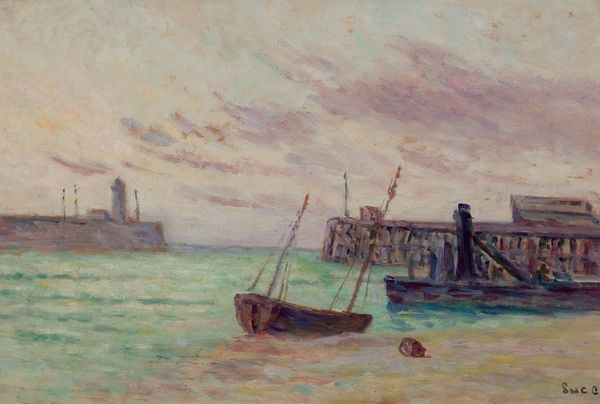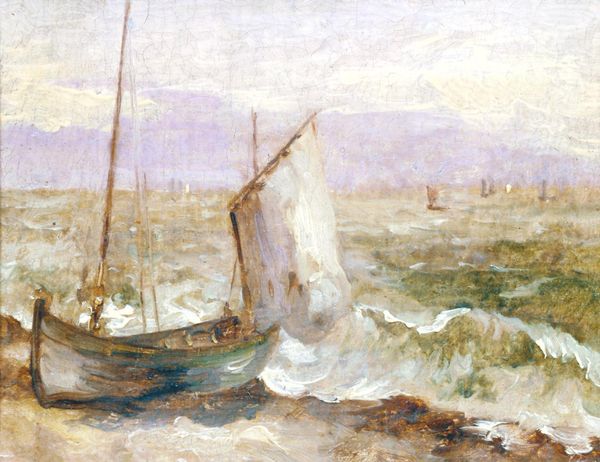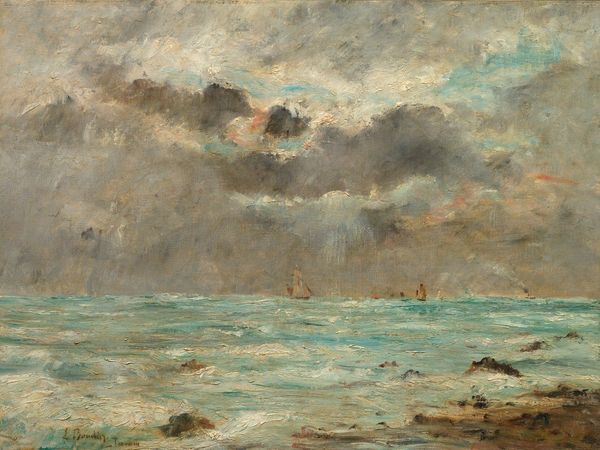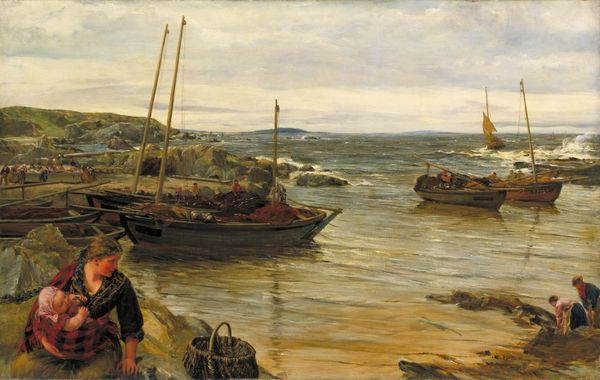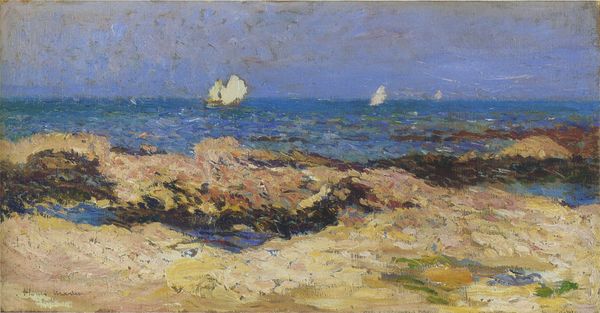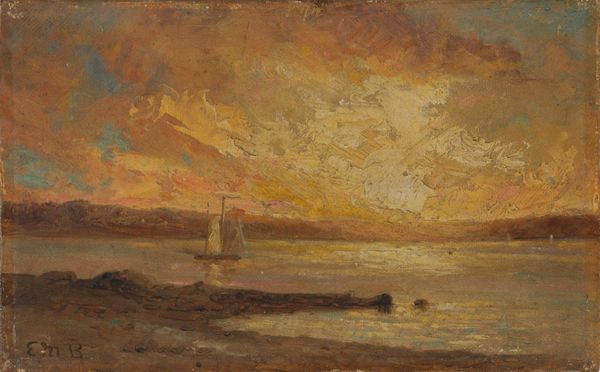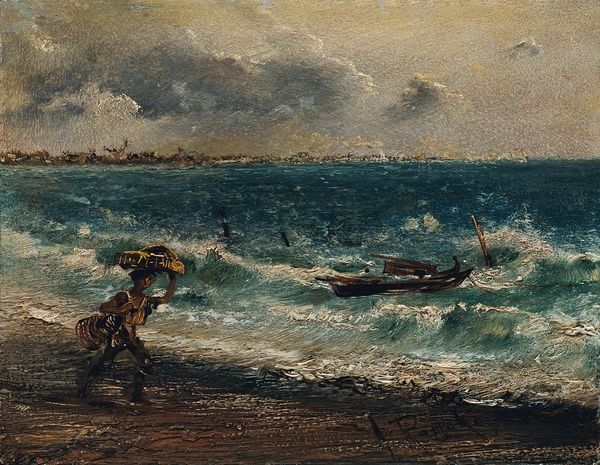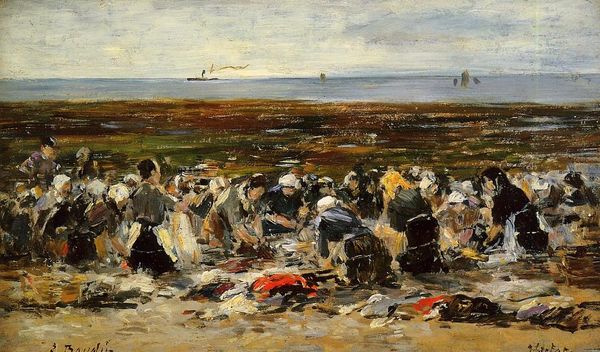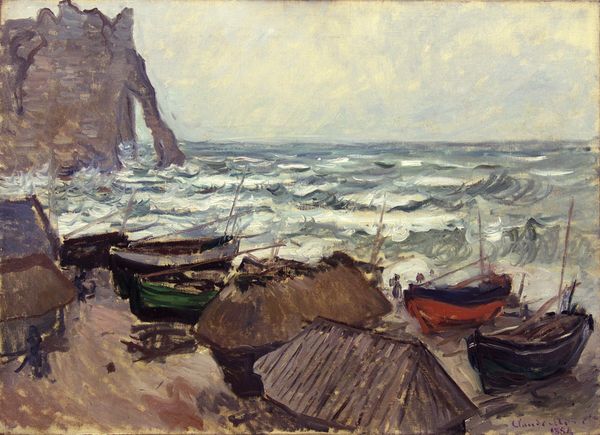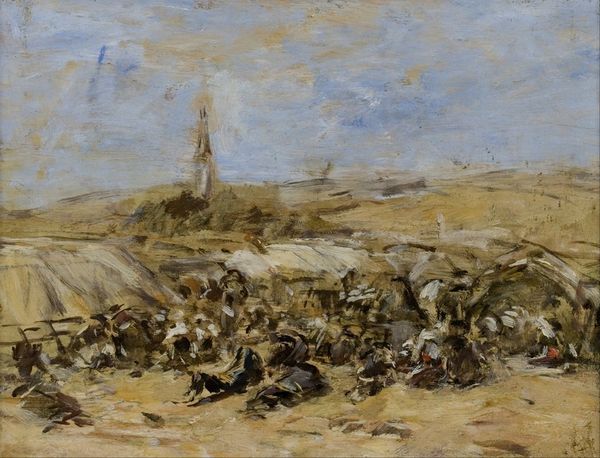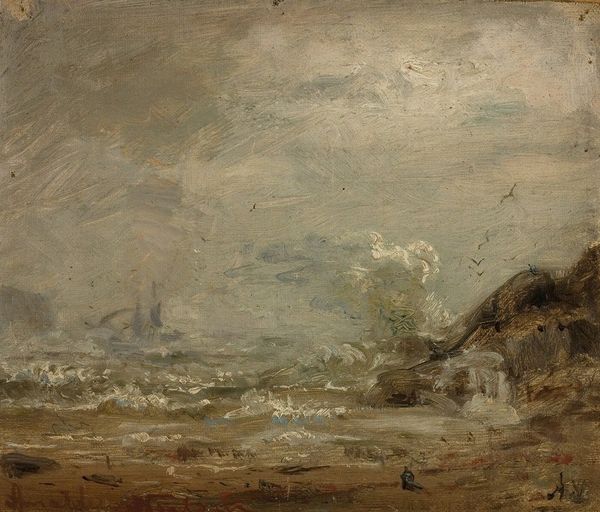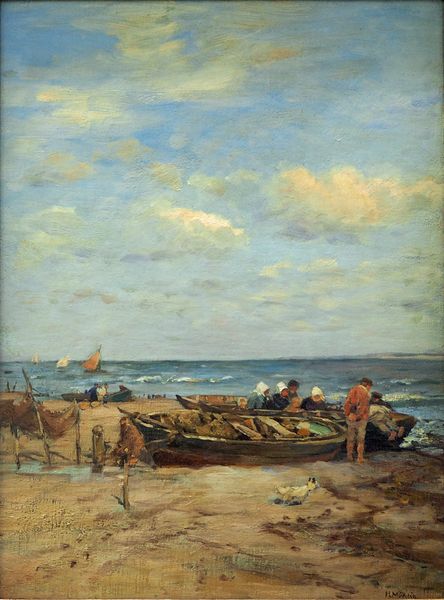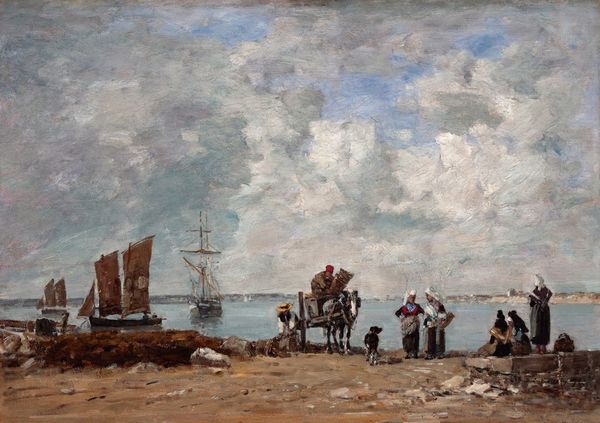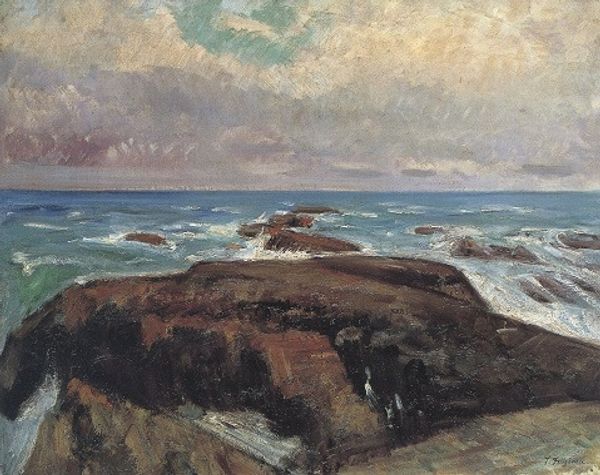
Dimensions: support: 946 x 1410 mm frame: 1365 x 1823 x 152 mm
Copyright: CC-BY-NC-ND 4.0 DEED, Photo: Tate
Editor: Here we have William McTaggart's "The Emigrants," housed at the Tate. The scene is dominated by the beach and the somber sky. What catches your eye in this work? Curator: The materiality speaks volumes. Notice the thick application of paint, mimicking the roughness of the coastal landscape and the arduous journey faced by those emigrating. This isn't just a scene; it's a record of labor and the physical process of leaving. Editor: So, it’s the artistic process reflecting the labor of emigration? Curator: Precisely. The artist’s very act of creation mirrors, in a way, the act of building a new life through labor and displacement. It's about the conditions of production for both the art and the emigrants. Editor: That’s a powerful connection. I'll certainly think differently about the artist's process and the materials used moving forward.
Comments
tate 9 months ago
⋮
http://www.tate.org.uk/art/artworks/mctaggart-the-emigrants-n04610
Join the conversation
Join millions of artists and users on Artera today and experience the ultimate creative platform.
tate 9 months ago
⋮
When McTaggart finished his training at the Trustees’ Academy in Edinburgh, he practised as a portrait painter with a minutely realistic technique. He became more interested in painting figures in landscape, and by the 1880s his handling of paint was much broader. He painted the sea and coastline, in works that are reminiscent of Courbet. The series of ‘emigrants’ that he painted combine these interests with a subject of serious social concern in Scotland, the emigration of people from the West Coast to live in Canada and Australia. McTaggart had first-hand experience of such emigration in his own family. Gallery label, November 2016
